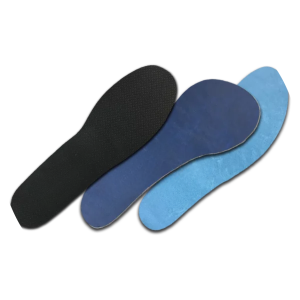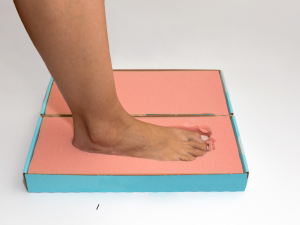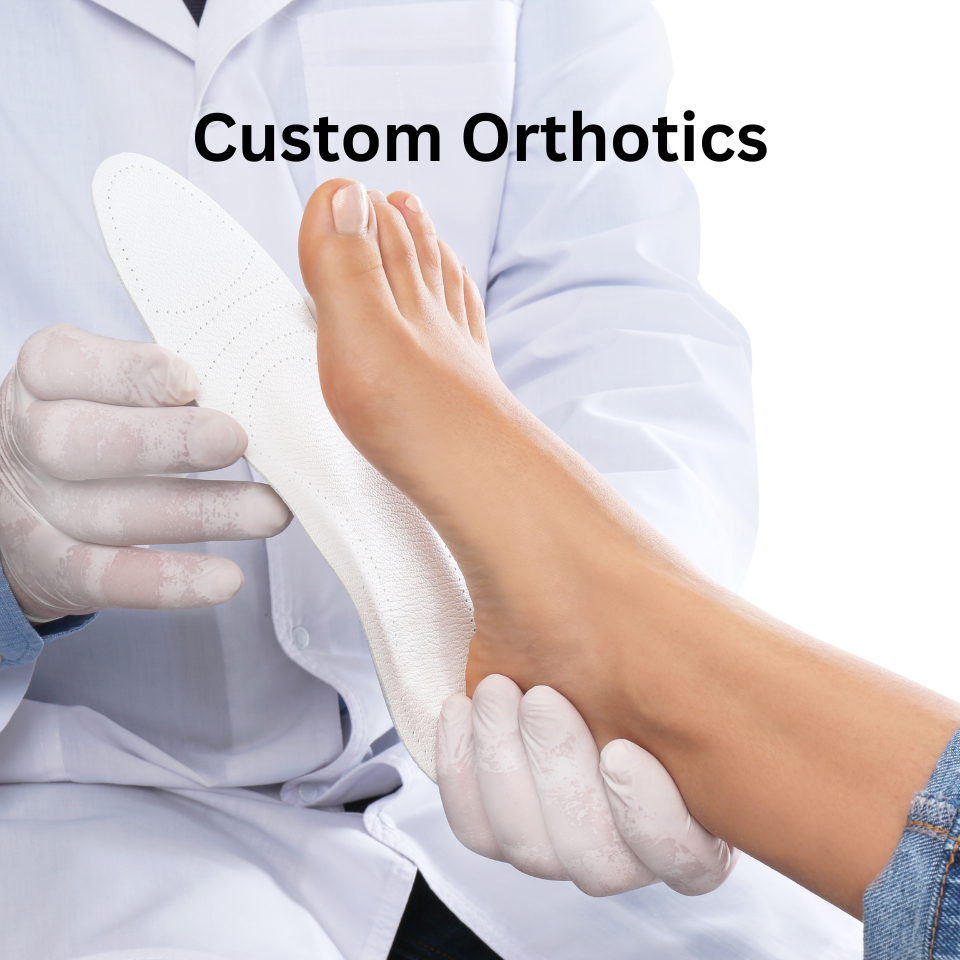Custom orthotics are specialized devices meticulously designed to provide support and comfort to your feet. Unlike over-the-counter shoe inserts, prescription custom orthotics are tailored specifically to your unique foot structure and biomechanics, ensuring a precise fit and optimal functionality.
What are Prescription Custom Orthotics?
Prescription custom orthotics are uniquely crafted devices intended to support and comfort your feet. They are not off-the-shelf products but are tailored to match the exact contours of your feet. Prescription orthotics are prescribed by a podiatrist after a thorough evaluation of your feet, ankles, and legs. This assessment ensures that the orthotics accommodate your specific foot structure and address any underlying pathologies.

To schedule an appointment for custom orthotics, or if you have further questions about prescription orthotics, give us a call:
Foot & Ankle Centers
Morris: (815) 942-9050
Yorkville: (630) 553-9300
Custom orthotics are divided into two main categories:
- Functional Orthotics: These are designed to control abnormal motion, and are typically used to treat foot pain resulting from abnormal movement. They are also effective in managing injuries such as shin splints or tendinitis. Functional orthotics are usually made from semi-rigid materials like plastic or graphite, providing the necessary support while allowing for some flexibility.
- Accommodative Orthotics: Softer than functional orthotics, accommodative orthotics provide additional cushioning and support. They are used to treat conditions like diabetic foot ulcers, painful calluses, and other discomforting foot issues. These orthotics are crafted from softer materials to enhance comfort and support.
Conditions Treated with Prescription Orthotics
Podiatrists prescribe orthotics to manage various foot problems, including:
- Plantar Fasciitis: Inflammation of the plantar fascia, causing heel pain.
- Bursitis: Inflammation of the bursae, leading to pain and discomfort.
- Tendinitis: Inflammation of the tendons, often resulting from overuse.
- Diabetic Foot Ulcers: Open sores on the feet, commonly seen in diabetic patients.
- General Foot, Ankle, and Heel Pain: Pain in various parts of the foot and lower extremities.
Clinical studies have demonstrated that podiatrist-prescribed orthotics can significantly reduce foot pain and enhance functionality, making them a valuable investment for individuals with chronic foot issues.
Custom Orthotics vs. Shoe Inserts
While custom orthotics are specifically tailored to your feet, shoe inserts are generic products available in retail stores. Here’s a closer look at the differences:
Shoe Inserts
Shoe inserts are pre-packaged, mass-produced devices designed to provide general foot support. Common types of shoe inserts include:
- Arch Supports: Designed to support the foot’s natural arch, available for high, low, or flat arches.
- Insoles: Provide extra cushioning and support, often made from gel, foam, or plastic.
- Heel Liners: Offer additional cushioning in the heel region, useful for age-related heel pain.
- Foot Cushions: Used to prevent shoes from rubbing against the heel or toes, available in various shapes and sizes.
Shoe inserts can offer temporary relief for minor foot ailments, such as flat arches or general discomfort. However, they cannot correct biomechanical issues or provide long-term solutions for chronic foot problems.
Custom Orthotics
Custom orthotics, on the other hand, are specifically designed for your feet. They are made after a thorough evaluation by a podiatrist, ensuring that they address your unique foot structure and movement patterns. Unlike generic shoe inserts, custom orthotics can correct biomechanical issues and provide long-term relief from chronic foot conditions.

Benefits of Prescription Custom Orthotics
Investing in prescription custom orthotics offers several benefits:
- Personalized Fit: Custom orthotics are tailored to the exact contours of your feet, ensuring a precise fit and optimal support.
- Improved Functionality: By addressing specific biomechanical issues, custom orthotics enhance foot function and reduce pain.
- Durability: Made from high-quality materials, custom orthotics are designed to last for many years with proper care.
- Insurance Coverage: Many insurance plans cover the cost of prescription orthotics, making them a cost-effective solution for managing foot problems.
When to Visit a Podiatrist
It’s important to consult a podiatrist if you experience significant pain or discomfort. A podiatrist can conduct a thorough assessment of your foot health, examine your feet and gait, and using advanced technology to understand how your feet function during movement.
Schedule an appointment today at Foot & Ankle Centers, for a full foot and ankle examination.









